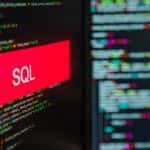In the realm of Data Intelligence, the blog demystifies its significance, components, and distinctions from Data Information, Artificial Intelligence, and Data Analysis. Use cases illustrate its impact across healthcare, finance, marketing, and manufacturing.
For aspiring professionals, a comprehensive guide outlines roles, skills, and salaries in the field. Data Intelligence emerges as the indispensable force steering businesses towards informed and strategic decision-making.
Deciphering Data Intelligence
In the words of Daniel Keys Moran, “You can have data without information, but you cannot have information without data.” This notion underscores the pivotal role of data in today’s dynamic landscape. As industries burgeon with data, unraveling its intelligence becomes paramount.
Keep reading as we delve into the crux of Data Intelligence. In this blog, I will answer all the questions that could arise in your mind. First, I will answer the fundamental question ‘What is Data Intelligence?’. So, let’s get started.
What is Data Intelligence in Data Science?
Wondering what is Data Intelligence in Data Science? In simple terms, Data Intelligence is like having a super-smart assistant for big companies. It’s the clever set of tools we use to grasp the information we gather. Imagine this: we collect loads of data, right?
Data Intelligence takes that data, adds a touch of AI and Machine Learning magic, and turns it into insights. These insights? They’re gold. They guide our decisions, making them more intelligent and more effective.
It’s not just about having data; it’s about turning that data into real wisdom for better products and services. In a nutshell, Data Intelligence is the brain behind our business moves.
What is Data Intelligence with an example?
So, what is Data Intelligence with an example? For example, an e-commerce company uses Data Intelligence to analyze customer behavior on their website. Through advanced analytics and Machine Learning algorithms, they identify patterns such as popular products, peak shopping times, and customer preferences.
With this insight, the company can optimize its website layout, personalize recommendations, and strategically plan promotions during peak times. By leveraging Data Intelligence, the e-commerce business transforms raw data into actionable insights, ultimately enhancing the overall customer experience and boosting sales.
Importance of Data Intelligence
Strategic navigation: Data Intelligence is a reliable compass directing our business strategies precisely and purposefully.
Informed decision-making: Beyond mere numbers, Data Intelligence illuminates the path to informed choices, providing a profound understanding of the intricacies at play.
Improved outcomes: It is a guiding light in a dark room, revealing hidden opportunities and potential risks. Businesses transform uncertainty into clarity through Data Intelligence, leading to improved outcomes.
Adaptability culture: We foster a culture of adaptability by harnessing the power of Data Intelligence. It’s not just about making decisions; it’s about making the right ones in a dynamically changing landscape.
Calculated moves: Data Intelligence is the difference between a shot in the dark and a calculated move. It becomes a key ally in shaping outcomes and mitigating risks.
Vitality in decision-making: Data Intelligence is the heartbeat of intelligent decision-making, infusing vitality into every facet of our business endeavors.
Key Components of Data Intelligence
In Data Intelligence, understanding its core components is like deciphering the secret language of information. Let’s dive into the key elements that make up the fascinating world of Data Intelligence.
Data Analysis and Interpretation
In the heart of Data Intelligence lies the art of analysis. It’s not just about collecting data; it’s about turning raw information into meaningful insights. Through statistical methods and advanced algorithms, we unravel patterns, trends, and valuable nuggets that guide decision-making.
Technologies, tools, and methodologies
Imagine Data Intelligence as a toolbox filled with gadgets for every analytical need. From powerful analytics software to Machine Learning algorithms, these tools transform data into actionable intelligence. Exploring technologies like Data visualization tools and predictive modeling becomes our compass in this intricate landscape.
Data governance and security
Like a fortress protecting its treasures, data governance, and security form the stronghold of practical Data Intelligence. Think of data governance as the rules and regulations governing the kingdom of information. It ensures data quality, integrity, and compliance.
On the other hand, security is a vigilant guard, safeguarding against unauthorized access and potential breaches.
Navigating the data governance maze
Quality assurance: Ensuring data accuracy and reliability through regular checks and audits.
Compliance standards: Adhering to legal and industry-specific regulations to maintain ethical data practices.
Access controls: Dictating who can access, modify, or delete data, preventing unauthorized tampering.Encryption: Safeguarding data through encryption, turning it into unreadable code for unauthorized eyes.
Difference between Data Intelligence, Data Information, Artificial Intelligence, and Data Analysis
Now, I will answer your questions like ‘What is Data Intelligence and Artificial Intelligence?’ and ‘‘What is the difference between Data Intelligence and Artificial Intelligence?’. Look at the table below.
| Criteria | Data Intelligence | Data Information | Artificial Intelligence | Data Analysis |
| Definition | Data Intelligence involves the analysis and interpretation of data to derive actionable insights. It goes beyond raw data, focusing on making informed decisions. | Data Information is the processed and organised data that provides context and meaning. It’s the result of sorting and structuring raw data for better understanding. | Artificial Intelligence refers to machines or computer systems that can perform tasks that require human intelligence. It includes learning from experience, reasoning, and problem-solving. | Data Analysis involves inspecting, cleaning, transforming, and modeling data to discover useful information, draw conclusions, and support decision-making. |
| Focus | Concentrates on deriving insights and actionable information data, emphasizing decision support. | Primarily concerned with organizing and presenting data in a comprehensible manner, enhancing understanding. | Aims to create systems that can perform tasks without explicit programming and mimicking human intelligence. | Focuses on systematically examining data to draw conclusions or identify patterns. |
| Role | Guides decision-making processes by providing relevant insights and foresight based on analyzed data. | It transforms raw data into a usable format, making it accessible for interpretation and decision-making. | Encompasses the development of algorithms and models that enable machines to perform tasks without explicit instructions. | Involves uncovering patterns, trends, and insights within datasets. |
| Human Involvement | Requires human intelligence for interpretation and decision-making based on the generated insights. | Primarily involves human intervention for organizing, presenting, and interpreting information. | Involves human input to define goals, provide initial data, and evaluate AI systems outputs. | Requires human analysts to design, execute, and interpret analyses. |
In essence, while Data Intelligence and Data Information play pivotal roles in decision support and comprehension, Artificial Intelligence represents machine intelligence.
Data Analysis, on the other hand, relies on human-driven processes to extract meaningful insights from data sets. Understanding these distinctions guides us toward effective and informed decision-making as we navigate the evolving data landscape.
Use cases for intelligence data quality
| Industry | Use Case | Impact | Challenges | Solutions |
| Healthcare | Patient Care Optimisation | Enhances treatment plans and reduces errors | Ensuring patient data accuracy. | Implementing robust data validation processes. |
| Clinical Research Acceleration | Speeds up research processes and drug development | Integrating diverse data sources. | Implementing interoperable data platforms. | |
| Resource Allocation Improvement | Optimises staff and resource allocation | Balancing workload and resource availability | Implementing predictive analytics for resource planning. | |
| Finance | Fraud Detection | Improves detection accuracy and minimises losses | Increasing sophistication of fraud. | Continuous enhancement of fraud detection algorithms. |
| Algorithmic Trading Optimisation | Enhances trading strategies and risk management | Handling vast datasets in real-time. | Investing in high-performance computing and scalable data storage. | |
| Customer Risk Profiling | Improves credit risk assessment and decision-making | Evolving regulatory requirements. | Adopting agile risk management frameworks. | |
| Marketing | Targeted Campaigns | Increases campaign effectiveness and ROI | Data silos leading to inconsistent information. | Implementing integrated data management systems. |
| Customer Segmentation | Enhances personalised marketing strategies | Balancing privacy concerns with targeted marketing. | Implementing transparent data privacy policies. | |
| Social Media Analytics | Analyses sentiment and improves brand perception | Handling unstructured data. | Utilising advanced natural language processing algorithms. | |
| Manufacturing | Predictive Maintenance | Reduces downtime and extends equipment life | Managing large volumes of sensor data. | Implementing advanced analytics for predictive maintenance. |
| Supply Chain Optimisation | Improves efficiency and reduces operational costs | Addressing disruptions and uncertainties. | Implementing data-driven supply chain visibility. | |
| Quality Control Enhancement | Ensures product quality through data insights | Identifying defects in real-time. | Integrating IoT sensors and Machine Learning for real-time monitoring. |
A career in Data Intelligence
One of the most important that comes to mind is ‘What is the profession requiring Data Intelligence skill?’ or “What is the salary in each job role?’. I have answered your worries in the table below.
| Profession | Description | Average per year salary in India | Skills required | How to gain the skills |
| Data Analyst | Responsibilities include collecting, processing, and analysing data to help organisations make informed decisions. | ₹ 6,20000 | Analytical skills, proficiency in Data Analysis tools (e.g., Excel, SQL), and attention to detail | Gain practical experience through internships, online courses, and work on real-world projects. |
| Data Scientist | Involves advanced analysis of complex datasets to extract insights and create predictive models. | ₹ 12,00000 | Programming (e.g., Python, R), Machine Learning, statistical modelling, Data Visualisation | Pursue advanced degrees, participate in hackathons, and build a strong online presence by sharing projects on platforms like GitHub. |
| Business Intelligence Analyst | Focuses on transforming raw data into actionable business insights to support strategic decision-making. | ₹ 9,43,649 | Business acumen, Data Visualisation tools (e.g., Tableau), communication skills | Combine business studies with data courses, engage in case studies, and attend industry conferences. |
| Machine Learning Engineer | Designs and develops algorithms that enable computers to learn from and make predictions or decisions based on data. | ₹ 10,00000 | Deep learning, programming (e.g., Python), model deployment | Work on open-source projects, contribute to online forums, and pursue specialised Machine Learning certifications. |
| Data Engineer | Builds and manages the infrastructure for collecting, storing, and analysing large volumes of data. | ₹ 8,45000 | Database management, programming (e.g., Java, Scala), data warehousing | Build a strong foundation in databases, gain programming skills, and engage in hands-on projects and internships. |
| Database Administrator | Manages and ensures the security and performance of databases, including organising and storing data efficiently. | ₹ 7,65536 | Database management, troubleshooting, attention to detail | Obtain relevant certifications, participate in workshops, and gain practical experience through internships. |
| Data Architect | Designs and creates data systems and structures for optimal organisation and retrieval of information. | ₹ 24,30000 | Data modelling, system architecture, communication skills | Pursue degrees in computer science or related fields, gain experience in database design, and stay updated on industry trends. |
| Quantitative Analyst (Quant) | Applies mathematical and statistical methods to financial and risk management problems. | ₹ 19,46,259 | Quantitative analysis, financial modelling, and programming (e.g., Python, MATLAB) | Pursue degrees in quantitative fields, and gain experience through internships, and stay informed about financial markets. |
| Market Research Analyst | Uses data to assess market conditions, analyse competitors, and help companies understand consumer preferences. | ₹ 1,50000 – ₹ 7,90000 | Market research, data interpretation, communication skills | Combine studies in market research or related fields with hands-on projects, internships, and networking in the industry. |
| Operations Analyst | Examines and analyses operational data to identify areas for improvement and efficiency. | ₹ 2,40000 – ₹ 8,00000 | Process optimisation, Data Analysis, problem-solving | Combine studies in operations management with hands-on projects, internships, and continuous learning in Data Analysis tools. |
| Supply Chain Analyst | Uses data to optimise supply chain processes, manage inventory, and enhance overall efficiency. | ₹ 2,50000 – ₹ 12,80000 | Supply chain management, Data Analysis, problem-solving | Pursue education in supply chain management, gain experience through internships, and stay updated on industry advancements. |
| Digital Marketing Analyst | Analyses digital marketing data to evaluate the effectiveness of campaigns and guide future strategies. | ₹ 4,79491 | Digital marketing knowledge, data interpretation, Data Visualisation | Combine marketing studies with hands-on digital projects, internships, and certifications in digital marketing analytics. |
| Cybersecurity Analyst | Utilises Data Analysis to identify and mitigate security threats and vulnerabilities. | ₹ 5,89,579 | Cybersecurity knowledge, Data Analysis tools, attention to detail | Gain cybersecurity certifications, participate in ethical hacking projects, and pursue a degree in cybersecurity or a related field. |
| Environmental Analyst | Analyses environmental data to assess the impact of human activities on the environment and recommend sustainable practices. | ₹ 3,00000 | Environmental science knowledge, Data Analysis, communication skills | Pursue education in environmental science or related fields, engage in environmental projects, and stay informed about sustainable practices. |
| Policy Analyst | Uses data to inform policy decisions, assess the impact of policies, and identify areas for improvement. | ₹ 9,11345 | Policy analysis, data interpretation, communication skills | Pursue degrees in public policy or related fields, engage in policy-related projects, and stay updated on policy issues and trends. |
| Social Media Analyst | Analyses social media data to understand user behaviour, track trends, and inform marketing strategies. | ₹ 1,50000 – ₹ 7,00000 | Social media knowledge, data interpretation, Data Visualisation | Combine marketing studies with hands-on social media projects, internships, and certifications in social media analytics. |
*The data related to salary has been taken from Glassdoor and Ambition box.
FAQs
What are the use cases for intelligent data quality?
Intelligent data quality enhances patient care, accelerates clinical research, optimises resource allocation in healthcare, improves fraud detection in finance, and enables targeted marketing strategies.
Why is Data Intelligence important?
Data Intelligence is crucial for strategic navigation, informed decision-making, adaptability culture, and calculated moves. It transforms data into actionable insights, guiding intelligent decision-making in dynamic business landscapes.
What is the difference between Data Intelligence and Data Analyst?
Data Intelligence guides decision-making with insights derived from Data Analysis. A Data Analyst, however, focuses on collecting, processing, and analyzing data, playing a role in the broader field of Data Intelligence.
What is the difference between data information and Data Intelligence?
Data information is processed and organized to provide context. In contrast, Data Intelligence involves analyzing and interpreting data to derive actionable insights, guiding decision-making beyond raw details.
Summing up
As we navigate the data landscape, understanding the power of Data Intelligence is critical. It transforms raw data into actionable insights, guiding intelligent decision-making. In a dynamic world, Data Intelligence emerges as the brain behind strategic moves, ensuring adaptability, improved outcomes, and vitality in decision-making.













